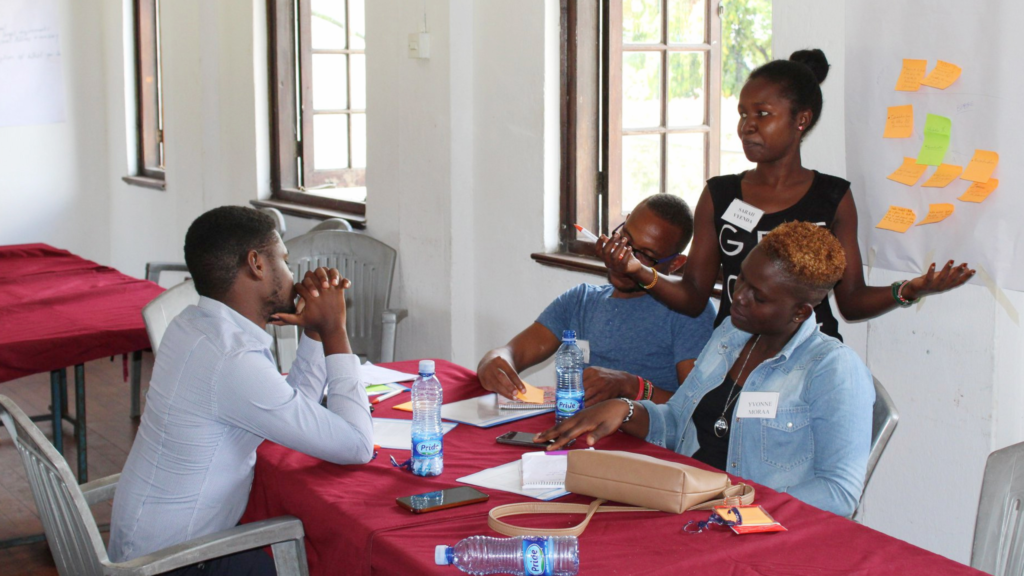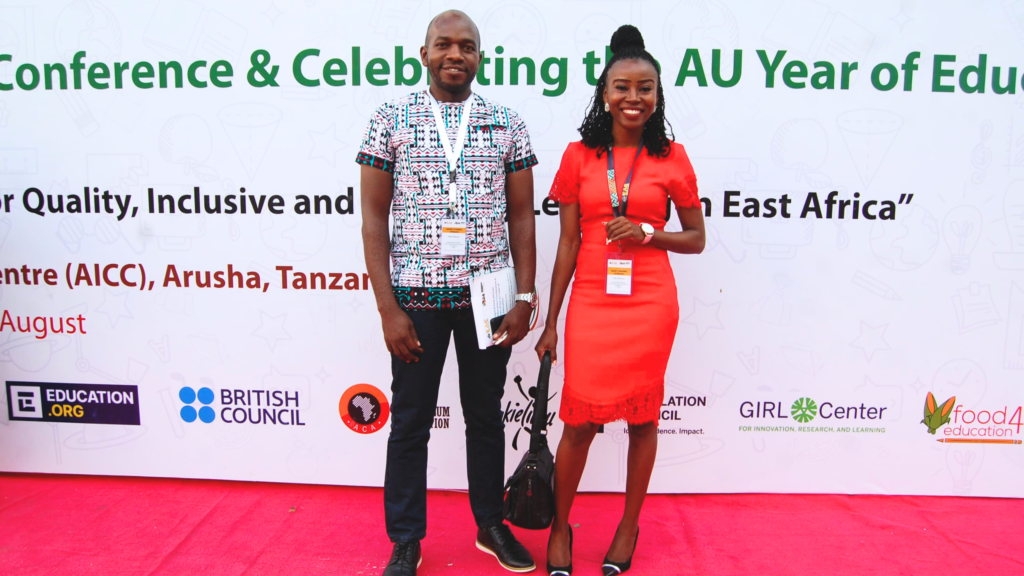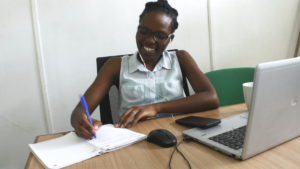
At the beginning of 2021, Hatua was lucky enough to welcome some amazing people into our team. One of those people is Anita Akinyi, Hatua’s University Mentoring Coordinator.
Anita wears many hats in her new role at Hatua. And a lot of exciting things have been happening since she started in January. We decided to have chat and learn about the most interesting role of all — how she matches our beneficiaries to professional mentors!
Karibu Hatua, Anita! We’re glad to have you with us. How have the first few months in your new role been?
I would describe my first few months as exciting and challenging at the same time. I feel encouraged to think outside the box and try out new things. Plus, I like the fact that my colleagues are friendly and very helpful.
Tell us more about your role as Hatua’s ‘mentor matchmaker’, so to speak. How do you go about the pairing of mentors to students?
The first step is the student database. I’ll look for students in their second year and above to pair with mentors from a similar database of mentors who have shown interest and signed up to be a mentor. Then, based on what the student is studying, I’ll match them with a professional mentor working in a similar field.
If I can’t find a mentor in our database, I’ll look for one on LinkedIn. The next step is the most important one: I’ll talk to the potential mentor to confirm their availability and interest, and set up an initial call between them and the potential mentee. The call helps them get to know each other’s personality and check their compatibility.
After the call, I’ll ask each person separately how they felt about their conversation and whether they think they’d be a good match for each other. In fact, there’s a pair I matched where the feedback I received was that the mentee was excited and felt like she was talking to her sister during their initial call. They actually spoke for two hours!
If all goes well, the ‘match’ becomes ‘official’. I then share more details about the objectives of the program such as roles, their roles, workplans and timelines of the mentorship program. There’s also a commitment form which both the mentor and mentee sign, as well as an information guide to help them get ideas for what to discuss during their first few sessions.
What happens once a match is made?
After the pairing, I follow up with them around 2 – 3 weeks later to check on how they are doing. I like to keep this to a minimum because we understand that mentors are volunteers, and they have other priorities on their plate as well.
I also use these check-ins to find out how they are doing, not just in terms of the mentor-mentee relationship but in other aspects of their lives. I also like to evaluate if mentees have learned something through the mentorship experience and whether their mentor has introduced them to other professionals working in their field of study.
Has there ever been a case where the match wasn’t “made in heaven”? And what did you do about it?
It is rare, but it does happen. Once, I had a situation where one of the parties didn’t feel like they were a match after their initial conversation. I had to reshuffle and look for someone else to pair with both of them, and this worked the second time around. They are now in mentoring pairs that are a better fit for them. If I had forcefully paired them, the relationship would most likely have been dormant or would have died out.
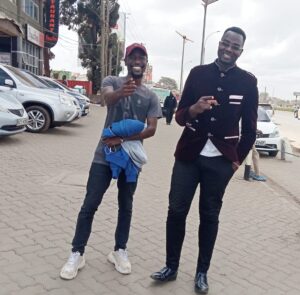
Clinton (R) is an artiste and music producer. Ian (L) is a 4th year student at Kenyatta University studying music technology.
What’s the most exciting part of this particular role?
I like to talk, and I also love listening to people especially when its related to mental health. So listening to students is what I enjoy most. A lot of them come from challenging backgrounds and sometimes they just need someone to talk to. I feel happy when I can make them smile and feel seen, it’s one of the highlights of my job overall. Whenever I’m interacting with students, I’ll usually go the extra mile to find out how they are doing.
What are some of the successes you’ve had in the mentoring program?
Well, since I started I’ve been able to onboard and pair 32 new mentors, which I’m excited about. One of our pairs has even met twice in person, just to have breakfast together! This shows me they have been able to build an actual relationship beyond what they committed to, and that to me is success.
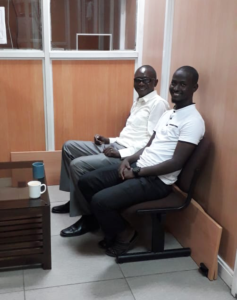
Mohamed Adan (R) is a 3rd year B.Com student at Gretsa University, having tea with his mentor Vitalice (L).
What sort of challenges do you face in the mentoring program?
Mentors are naturally busy professionals. Sometimes this has made it difficult for them to build relationships with their mentees because their schedules get in the way, or even the fact that they could be located in a different county from their mentees.
In your opinion, what have you seen has been working well in terms of nurturing a good mentor-mentee relationship?
A good mentorship relationship is one where there is depth to their interactions and they are able to achieve the goals they have mutually set. Daniel, Hatua’s Program Manager, likes to call this “cross-generational” friendship: it’s where they touch base with each other every two weeks sharing interesting things or just chatting in-between the two-week check-in interval. Ultimately, the best mentor-mentee relationships are really the ones where they are both invested in each other and want to help each other.
Interested in giving back to your community? Sign up to become a mentor with a Hatua Network by following this link: Hatua mentorship application
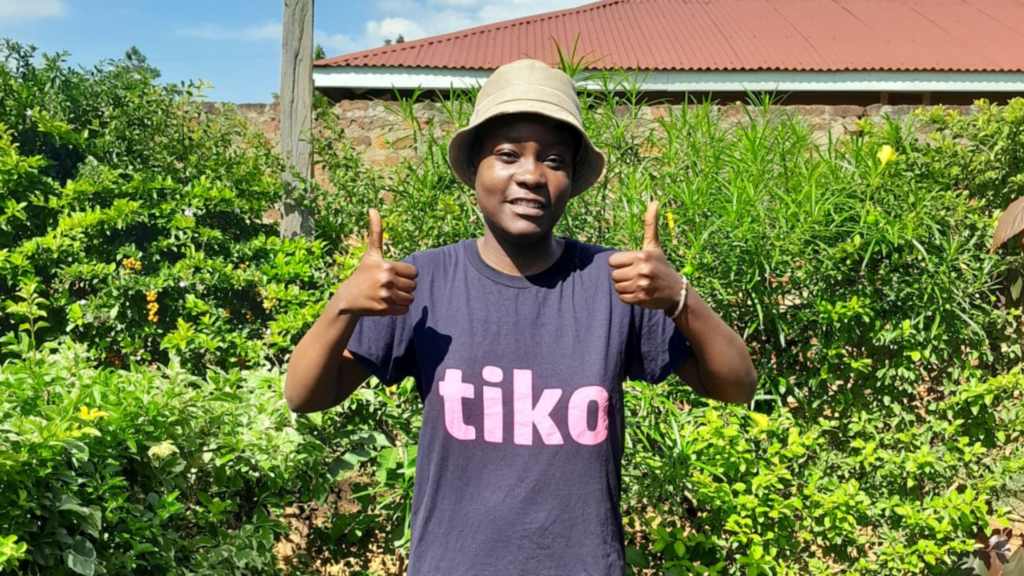
 Read More
Read More